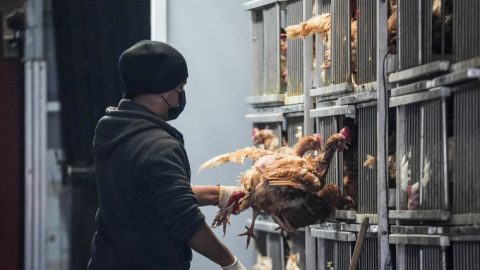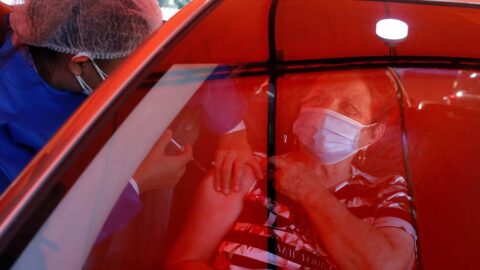Clinical trials for the University of Oxford’s COVID-19 vaccine have been put on hold, drug maker AstraZeneca said Tuesday.
“Our standard review process was triggered and we voluntarily paused vaccination to allow review of safety data by an independent committee,” the company said in a statement. “This is a routine action which has to happen whenever there is a potentially unexplained illness in one of the trials, while it is investigated, ensuring we maintain the integrity of the trials.”
Full coverage of the coronavirus outbreak
The statement continued: “In large trials illnesses will happen by chance but must be independently reviewed to check this carefully. We are working to expedite the review of the single event to minimize any potential impact on the trial timeline. We are committed to the safety of our participants and the highest standards of conduct in our trials.”
AstraZeneca, which is working with the University of Oxford on a coronavirus vaccine, began its phase 3 clinical trials in the U.S. last week. NBC News has confirmed that the pause has affected trial sites in the U.S.
Putting a trial on hold while researchers determine whether a serious adverse event was caused by a vaccine is “uncommon, but not unheard of,” Dr. Paul Offit, director of the Vaccine Education Center at Children’s Hospital of Philadelphia, said.
“Serious reactions do occur in vaccine trials,” Dr. Gregory Poland, an infectious diseases expert and director of the Mayo Clinic’s Vaccine Research Group in Rochester, Minnesota, said in an email to NBC News. “Generally, when these events occur, trials are paused, data collected, and an independent data monitoring and safety board reviews the details to make a determination whether to resume the trial or alter it in some way.”
“Often these events are coincidental, but these precautions are necessary to ensure the safety of the trial participants,” Poland said.
“Presumably, we should hear more about what the problem was in a few days,” said Offit, who is on the Food and Drug Administration’s vaccine advisory committee.
The Oxford trial was the third phase 3 trial to begin in the U.S. Pfizer and Moderna began their phase 3 trials in late July and have already enrolled about 30,000 volunteers.
The Oxford vaccine uses a type of virus called an adenovirus to teach the immune system how to make antibodies to attack the coronavirus’ so-called spike protein. It’s that spike protein that allows the virus to infect human cells.
Follow NBC HEALTH on Twitter & Facebook.
Meg Tirrell contributed.










Recent Comments